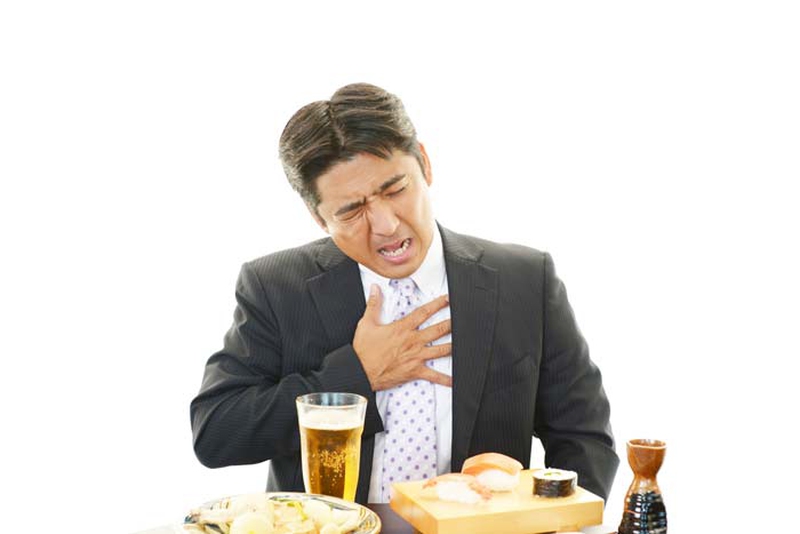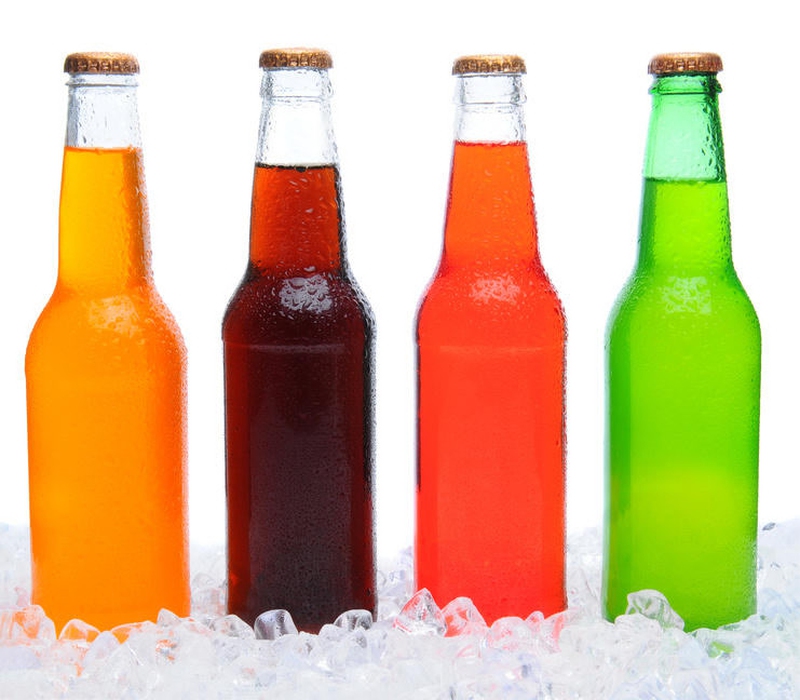Passing gas is a common symptom that everyone experiences but no one admits. Every average individual tends to break the wind for about 13 to 21 times in a day. So, one must not deal with it as some BIG issue. But it may become an issue when your lifestyle involves unhealthy eating habits. Every individual comes with a different gaseous pattern. Some have it normal while some have excessive gas at night or in any other part of the day.
Possible Reasons of Abdominal Gas
Gassy Food Items
Gassy foods are the biggest reason of gas trouble. There are a number of foods that are known to promote gas production in the body. Taking them in the evening might cause you gas in the night. Undigested food takes 5 to 6 hours in reaching the large intestine. Once food reaches there, the process of bacterial fermentation creates gas and you have to experience excessive flatulence. To avoid such gaseous condition, you must avoid taking gassy foods in dinner. Some of the gas-producing foods are:
Beans
Broccoli
Cauliflower
Cabbage
Brussels sprouts
Banana
Orange
Apricot
Peaches
Potato
Pasta
Corn
Any fatty food item
Indigestion
Evenings and nights often come with less physical activity. So, whatever you would ingest, it would take time in digesting and you may suffer some gas-related problem. The trouble intensifies if you are habitual to midnight munching or if you opt for some heavy meal for dinner. Secondly, if you eat food quickly (without chewing properly), that too would cause a partial food digestion. If there is some food left indigested, it would get assembled (a gradual process) in the colon (large intestine). The good bacteria in colon try hard to proliferate it, and that whole process causes you to bloat and feel gassy.
Emotional Distress
Getting stressed directly affects our digestive system. It’s in your bed, in the late hours, when you think about the issues that are bothering your life. Stress causes a disruption in digestive system. Similarly, being stressed you tend to swallow excessive air through your mouth (sighs and crying etc.), that simply leads the body towards a gas buildup.
Constipation
You are quite likely to face excessive gas at night if you are suffering from constipation. This happens particularly in the cases, where all your attempts of a pre-sleep bowel movement end without success. In such cases, you would have to go through crankiness and restlessness all through the night.
Foods with Sugar Substitutes
These products are not easily digested. Ingesting them in the late hours of the day might cause gas and flatulent conditions. Xylitol and sorbitol are the known sugar substitutes that are normally used in these products. Both xylitol and sorbitol are hardly digested. The good bacteria in our colon find it hard to break it down and the whole process of digestion continues slowly. As a result, you happen to have excessive amount of gas buildup.
Carbonated Drinks
Carbonated drinks contain a massive amount of carbon dioxide, and that is the very reason of gas trouble. Drinking carbonated beverages cause a storage of gas that you finally release in the form of burping or passing of gas. To ensure a sound sleep and to avoid a gassy night, you’d better avoid intake of carbonated beverages at night.
Intolerance for Dairy Products
Dairy products come with natural sugar in them, called ‘lactose’. Our body needs to have an ample amount of ‘lactase’ to digest it. There are many of us who don’t have enough lactase to help the body in breaking down these dairy products. And when you take them at any time particularly in the evening, you end up with excessive gas at night.
Swallowing the Air
About 50% of gas troubles occur because of swallowing of air. We keep doing it all day even without knowing that. And when you do that in the evening, it may cause you trouble at night. There are a number of activities that involve the swallowing of air. These may include:
Smoking
Chewing on chewing gum
Quick ingestion of food or drinks
Sipping on drinks with straw
Ill-fitted dentures cause the swallowing of excessive air
Medicines
There are certain medicines that might cause excessive gas, when taken on daily basis. Taking them in the evening might cause flatulence in the night.
What to Do about It?
The first thing that you can do about excessive gas is to change your eating habits and lifestyle, especially staying up late at night and ingesting food. Here are a few things that you must do:
Eat slowly and chew well to avoid the swallowing of air.
Medications like Maloox, Pepto-Bismol, Gas-X and Mylicon are some of the best medications for excessive gas. Whatever medicines you choose, make sure it contains simethicone, an ingredient that helps in controlling gas. It comes without any side effects.
Lessen the sugar intake. Sugar tends to break down quickly, causing your body to produce more gas at the time of digestion.
Add beano to your food. Beano contains alpha-galactosidase, that helps in preventing gas.
Say goodbye to all those bubbly and fizzy drinks. Preferring non-carbonated drinks over them is a better idea.
Intaking peppermint or ginger tea after dinner helps the food in getting digested.
Avoid fatty foods and opt for healthy food items that are easy to digest. Food should be enriched with minerals, calcium, proteins and vitamins.
Feeling uneasy after having dinner? A 10 minutes’ walk would surely relieve you. Besides this, exercising on daily basis is another great idea for avoiding gas trouble in the long run.
If stress is the reason why you are having excessive gas at night, practicing meditation exercises like yoga and deep breathing can help in overcoming this issue.
Proper intake of water helps in digesting the food easily.
Quit unhealthy habits like smoking and chewing on gums.
When to See a Doctor
Releasing of gas is a natural process and there is nothing to worry about it. But in case you are having certain symptoms, you must get assistance from your doctor. These symptoms may include:
Frequent and abnormal flatulence
Gas with abdominal cramps
Discharge of unbearably foul smell
Bloating



View All Comments /Add Comment